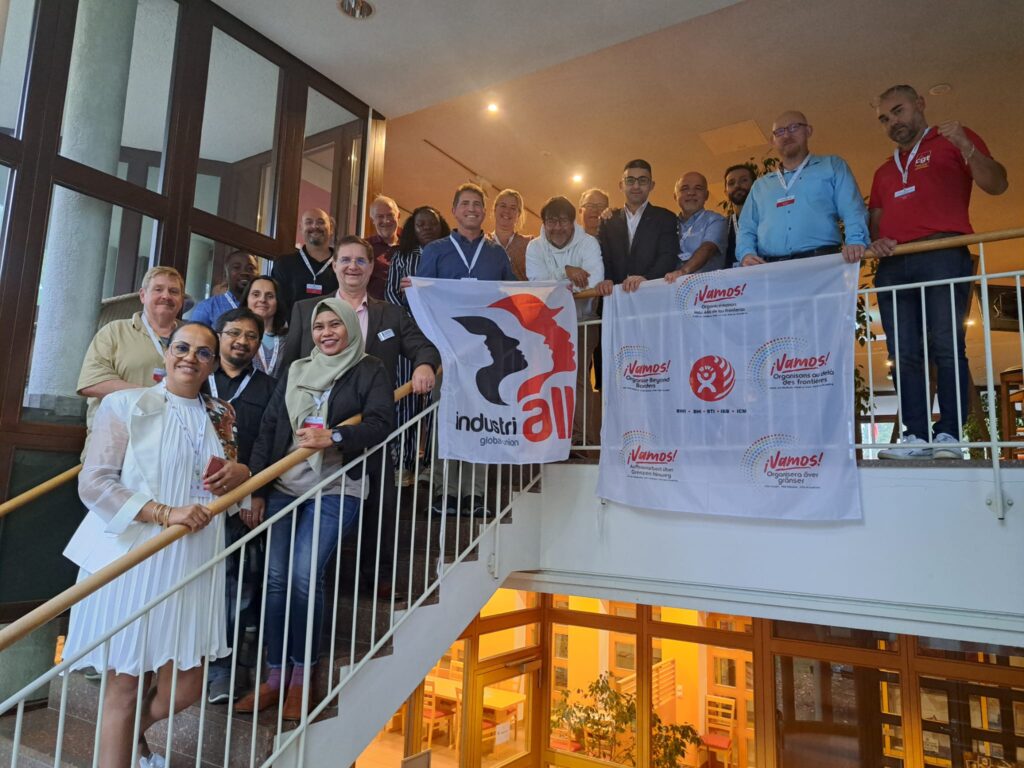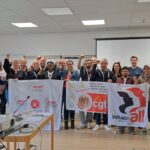Read this article in:
English
25 October, 2023Union delegates from around the world met in the heart of Germany to address the challenges and pressing issues faced by workers at the construction materials multinational Heidelberg Materials.
On 13-14 October, cement workers’ voices echoed through the corridors of the training centre of German construction union IG BAU in in Steinbach, demanding a Just Transition, fair treatment and genuine social dialogue with Heidelberg Materials. The 20 activists from unions affiliated to IndustriALL Global Union, Building and Wood Workers' International, and the European Federation of Building and Woodworkers, make up the Heidelberg materials global union network. The meeting was held with support of Fredrich Ebert Foundation.
Heidelberg Materials needs to reduce its carbon footprint and move to a sustainable production of cement with decreased CO2 emissions. Embarked on a journey of technological transformation and eco-consciousness, Heidelberg Materials is applying different technologies aimed at switching to renewable energy, installing carbon capture utilization and storage (CCUS) equipment, and deployment of other projects to show that it is an environmentally responsible company.
This evolution has an impact on the workers, including the need of reskilling and training, new health and safety challenges, generational gap, as well as the need for young and female workers and a more inclusive approach in employment. The company has yet to show an interest in global social dialogue and instead puts the challenges accompanying transformation on the workers’ shoulders.
The use of subcontractors in different countries has suppressed freedom of association and collective bargaining, leading to fatalities in 2022 and ongoing labour disputes, like in France where local French management refused to engage with CGT representatives, even during a strike. The company's goal is clear: maintain production at all costs, even if it meant facing economic losses, undermining industrial action, and increasing CO2 emissions.
Delegates expressed their deep regret over the company's reluctance to engage in a constructive and productive global and local social dialogue, despite numerous proposals. Despite being invited, the company declined attending the union network, repeating that it deals with social dialogue at the local level.
In a show of unwavering solidarity, the unions emphasized the importance of fostering peace and harmony within Heidelberg Materials globally. Failure to facilitate fair and transparent negotiations could jeopardize the company's reputation and financial stability in the long run.
The workers and the unions have straightforward demands: respect for human rights, development of global social dialogue based on ILO core labour standards and commit to environmental protection while providing Just Transition to workers. The Supply Chain Due Diligence Act that came into force in Germany in 2023, place even more responsibility on Heidelberg Materials to prevent human rights violations and environmental degradation.
The network adopted a statement, calling on the company to respect health and safety and other fundamental workers' rights. The delegates believe that the zero-harm target can only be reached through social dialogue, workers' participation, and joint monitoring.
Alexander Ivanou, IndustriALL materials director, said:
“We call on Heidelberg Materials to immediately resume social dialogue, incorporate a social dimension into their eco-policies, consult with unions on Just Transition, enhance workers' participation, align with human rights legislation and enforce compliance with all fundamental ILO conventions across all their operations. The world is watching, and change is imperative.”


